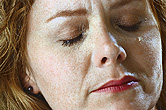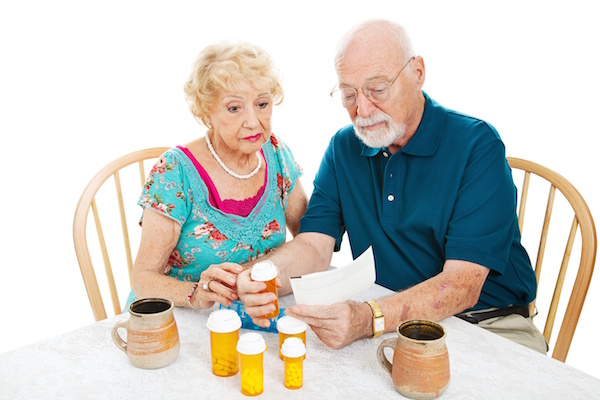
TUESDAY, Jan. 18 (HealthDay News) — The antidepressant medication escitalopram (brand name Lexapro) reduced the frequency and severity of hot flashes in older women, according to new research.
Women in the study experienced nearly 10 hot flashes a day at the start of the study, but those were cut to an average of just over five hot flashes a day in women receiving the antidepressant compared to about 6.5 per day in women receiving a placebo.
“Although hormone treatment is the usual treatment for hot flashes, and it is effective, for women who don’t want to assume the potential risks of hormone therapy, this is another option,” said the study’s lead author, Ellen Freeman, a research professor in the department of obstetrics and gynecology at the University of Pennsylvania School of Medicine.
“We found that after eight weeks of treatment with escitalopram, women had many fewer hot flashes a day compared to those on placebo,” she added.
Results of the study, funded by the U.S. National Institutes of Health, are published in the Jan. 19 issue of the Journal of the American Medical Association.
Hormone therapy has traditionally been the most common treatment offered to women experiencing hot flashes as part of the menopausal transition. However, when the Women’s Health Initiative study reported in 2002 that hormonal therapy had potentially serious risks, many women decided the benefits didn’t outweigh the potential hazards. Since that finding, experts have been able to better identify which women might have a greater risk from hormone therapy, and those for whom hormones are a possible option.
“For some appropriate women — meaning those without contraindications — the short-term use of estrogen or hormone therapy may still be a viable option. And [for these women] we use the lowest dose for the shortest time possible,” explained Dr. Judi Chervenak, a reproductive endocrinologist at Montefiore Medical Center in New York City.
“But, for women for whom hormones aren’t an option, or those who don’t want to take hormones, SSRIs [antidepressants] and SSRI-like medication are another option,” Chervenak said.
Selective serotonin reuptake inhibitors (SSRIs) are approved by the U.S. Food and Drug Administration for the treatment of depression, but doctors sometimes prescribe them for “off-label” (non FDA-approved) uses, such as for treating pain or — as in the study — for the relief of hot flashes. SSRIs include drugs such as Celexa, Lexapro, Paxil, Prozac and Zoloft.
A generic version of Lexapro isn’t yet available in the United States, according to the FDA. The cost of a month’s supply of the drug varies, but a 20-milligram per day dose is approximately $110 for 30 days.
The current trial included 205 women between the ages of 40 and 62 who were either beginning menopause or who had finished the menopause transition in the past year. To be included in the study, the women had to experience at least 28 hot flashes per week that they would classify as bothersome or severe; most women had more than that.
The women were randomly assigned to receive escitalopram (between 10 and 20 milligrams per day) or a placebo for eight weeks.
The researchers found that 55 percent of the women in the escitalopram group reported at least a 50 percent reduction in the frequency of their hot flashes, compared to 36 percent of those in the placebo group. The escitalopram group also reported a decrease in hot flash severity.
Within three weeks of stopping the medication, women in the escitalopram group had an increase of about 1.5 more hot flashes a day than those in the placebo group, the investigators noted.
Side effects were minimal, said Freeman. Just 4 percent of the escitalopram group dropped out due to adverse side effects.
Exactly how escitalopram helps relieve hot flashes isn’t known, according to Freeman. And, she noted, the exact cause of hot flashes still isn’t clear.
“Hot flashes are so distressing to so many women that to have any potential new option is appreciated. This isn’t the be-all, end-all treatment, but it’s another option that we have to offer patients with hot flashes,” said Chervenak.
She added that for women who don’t wish to take medication, one of the best ways to reduce hot flashes is to keep a symptom diary to see if you can figure out what might be causing your hot flashes so you can avoid it. For example, she said, many women experience a hot flash after drinking red wine. Other potential triggers include caffeine, chocolate, spicy foods and stressful situations.
More information
Learn more about the symptoms of menopause, including hot flashes, and what treatments are available from WomensHealth.gov.

